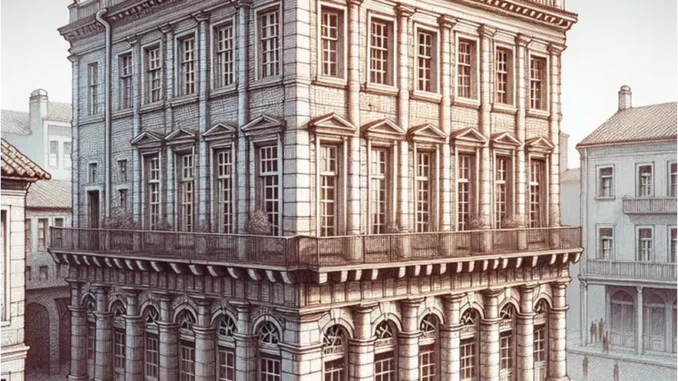
Retford’s town centre is a living museum, with its architectural heritage narrating tales of bygone eras. Among these storied structures, a particularly striking edifice on Market Square stands as a poignant emblem of the town’s rich past. Although it has seen better days, the building’s potential transformation into five modern flats has generated a significant buzz among the local community. To gain a deeper understanding of this transformative project, I spoke with Alice Turner, a local historian and active member of the Retford Heritage Society.
Focus360 Energy: property compliance services – pre-planning to post-construction. Learn more.
Alice Turner, a resident of Retford for over two decades, has devoted much of her time to advocating for the preservation and adaptive reuse of the town’s historic structures. Her extensive knowledge of the town’s architectural legacy provided invaluable insights into both the history and potential future of this notable building.
“The building we’re considering is a significant part of Retford’s history,” Alice began, her enthusiasm palpable. “Constructed in the late 18th century, it has served various purposes over the years, from a merchant’s house to a local inn.”
Alice elaborated on the building’s architectural features, which are emblematic of the Georgian era, marked by a symmetrical facade, sash windows, and elegant brickwork. “These details lend the building its unique character and charm,” she remarked. “However, like many historic buildings, it has suffered from neglect and underuse in recent years.”
The proposal to convert the building into five flats has sparked a spirited debate among residents. While there is a strong desire to see the building preserved and revitalised, some locals express concerns about the impact on the town centre’s character and the practicalities of such a conversion.
Alice acknowledged these concerns but remained optimistic about the project. “Adaptive reuse is a sustainable approach to preservation,” she noted. “It allows us to maintain the historical integrity of the building while providing it with a purpose that meets current needs. This way, we avoid the risk of the building falling into further disrepair or, worse, being demolished.”
The proposed flats aim to retain as much of the original architectural features as possible. “The developers have assured us that they will preserve the facade and many interior elements, such as the original wooden beams and fireplaces,” Alice shared. “It’s a delicate balance between old and new, but if done correctly, it can enhance the town centre’s appeal.”
Alice also highlighted the potential benefits to the local community. “The conversion could bring more residents into the town centre, which in turn would support local businesses and contribute to the area’s vibrancy. It’s not just about preserving a building; it’s about breathing new life into the whole area.”
As we strolled around the building, Alice pointed out various features and shared anecdotes about its history. Her passion for the project was evident, and it was easy to see why she and many others are hopeful about the building’s future.
“The community has a strong attachment to this building,” she said. “It’s part of our collective memory and identity. Seeing it restored and occupied again would be a victory for everyone who cares about Retford’s heritage.”
Alice’s involvement in the project extends beyond advocacy. She is also part of a local committee that liaises with the developers, ensuring that community concerns are heard and addressed. “We hold regular meetings and public consultations,” she explained. “Transparency and collaboration are key to the success of this project.”
As our conversation drew to a close, it became apparent that the proposed conversion of this historic building is more than just a construction project; it’s a community endeavour. Alice’s insights painted a picture of a town that values its past while eagerly embracing a sustainable and vibrant future.
“The past and the future are not mutually exclusive,” Alice concluded. “By respecting our history and adapting to contemporary needs, we can create a town centre that honours its roots while providing a thriving environment for future generations.”
Walking away from the interview, I felt a renewed appreciation for Retford’s rich heritage and the community’s commitment to its preservation. The project to convert the historic building into flats is still in its planning stages, but with passionate advocates like Alice Turner involved, it seems poised to become a shining example of how history and modernity can coexist harmoniously.


Be the first to comment